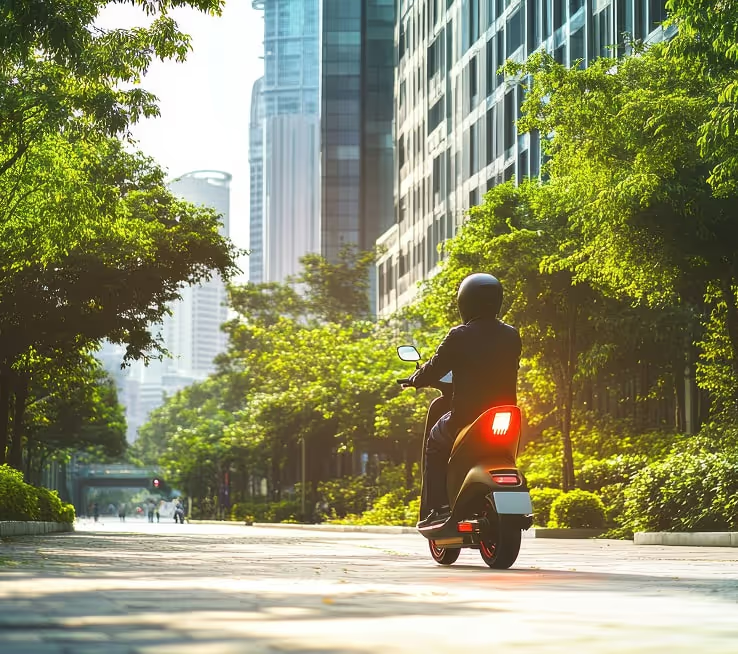The battle to defend congestion pricing

Welcome to CoMotion NEWS, your weekly roundup of news and analysis of the mobility revolution. If this email was forwarded, you can sign up here for NEWS.
From congestion pricing wars to self-driving showdowns, the mobility landscape is shifting fast—sometimes forward, sometimes backward, and sometimes in circles. New York’s congestion toll faces a Trump-sized roadblock, while Musk and his team of budget-slashing minions take aim at the regulators that had begun to ever-so-gently pry into Tesla’s autonomous driving capabilities. Speaking of Musk, does he even care about Tesla anymore? Some of his moves suggest otherwise. Meanwhile, Uber adapts to India’s rickshaw economy, asteroid miners raise millions, and Nikola—once worth $34 billion—prepares for a fire sale. And in good news for the planet, new figures show that UK’s green economy is booming and that LA Metro’s ridership continues to recover from the pandemic.
But the real question: Why are Americans moving less than ever? The Atlantic’s Yoni Appelbaum says it’s not just economics—well-meaning urban planners and restrictive policies may be holding us in place. And in case you think the only enemies of clean energy are fossil fuel giants and their boosters in government, Politico details how environmentalists are blocking key green infrastructure.
What you need to know

Congestion pricing lives on … for now: The Trump administration announces that it will revoke federal approval for New York City’s six-week-old congestion toll, even celebrating the decision by tweeting out a picture of the president wearing a king’s crown. After saying that Trump is not in fact a monarch, New York Gov. Kathy Hochul meets with the president and tries in vain to convince him to change his mind. That leaves New York no other option but to challenge the administration in court. As of now, the toll is in effect.
Trump’s decision earned plaudits from Democratic political leaders in New Jersey, where the toll is unpopular. A recent poll shows, however, that about 60% of New York City residents support maintaining it.
DOGE makes big cuts to traffic safety, AV safety offices: In addition to cutting 10% of the workforce of the National Highway Traffic Safety Administration through firings and buyouts, the DOGE boys have cut three of the seven people employed in a small unit overseeing autonomous vehicle safety investigations. Fired employees who spoke with the Washington Post said they don’t believe they were specifically targeted to reduce scrutiny of Tesla, but said the consequence will certainly be less “ability to understand the safety case behind Tesla’s vehicles” and other autonomous driving systems.

¡Hasta pronto, Miami!
CoMotion MIAMI is back for the 6th and most important edition on April 29-30, 2025. Meet and connect with leading policymakers and innovators from all corners of the mobility revolution.
Hear from the likes of:
- Mayor Daniella Levine Cava, Miami-Dade County
- Beth Kigel, Senior Vice President, HNTB
- Keith Carswell, Director, Department of Economic Innovation & Development, City of Miami
- Kevin Noertker, Co-Founder & CEO, Ampaire
- Justine Johnson, SVP & Chief Mobility Officer, MEDC
- Dmitriy Vanchugov, Global Head of Transit Partnerships, Uber Transit
- Benjamin Limmer, Public Transportation Bureau Chief, Connecticut Department of Transportation
- Paul Comfort, Host & Producer, Transit Unplugged
- Christopher Hudtwalcker, Senior Strategy & Innovation Officer, PortMiami
Attend and interact with the most influential thought-leaders in mobility. Act fast, the 50% Super Early Bird discount ends next week on March 4.
Does Elon even want this anymore? There are a lot of reasons for Elon Musk to be concerned about the car company that made him the world’s richest man. Its sales declined last year and it doesn’t appear to have made any progress towards making a car at a price that would allow it to become the mass market icon that its valuation demands. Musk, however, appears too busy running the country to be bothered with such trifles.
Rivian’s profits threatened by Trump: The EV maker says its cost-cutting has gotten it closer to profitability, but worries that the potential end of EV tax credits will reverse the progress.
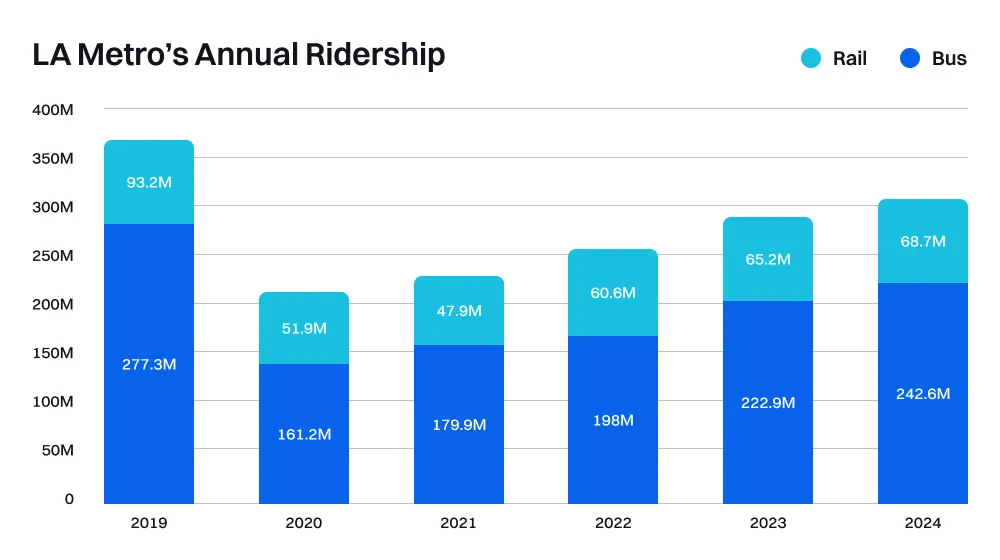
LA Metro’s 2024 Ridership Soars to More Than 311 Million: Ridership continues to climb back from the pandemic, even if it is still significantly behind pre-Covid levels. Metro attributes the increased ridership to increased frequency on bus routes as well as additional service aimed at the entertainment economy and special events, such as late night service and shuttle buses.
UK’s green economy heating up: The UK's green sector is outpacing the broader economy, expanding three times faster and contributing £83 billion in 2024, according to the Confederation of British Industry.
Uber bends to tradition for rickshaw drivers: The ride-hail giant shifts to a zero-commission model for auto-rickshaw drivers in India, now charging a subscription fee instead. This change allows drivers and riders to negotiate fares directly, aligning Uber's approach with local competitors like Rapido and Namma Yatri, which already use similar models.
Asteroid mining: Karman+, a Denver startup, raises $20 million in funding to develop autonomous spacecraft capable of traveling to and extracting resources from asteroids.
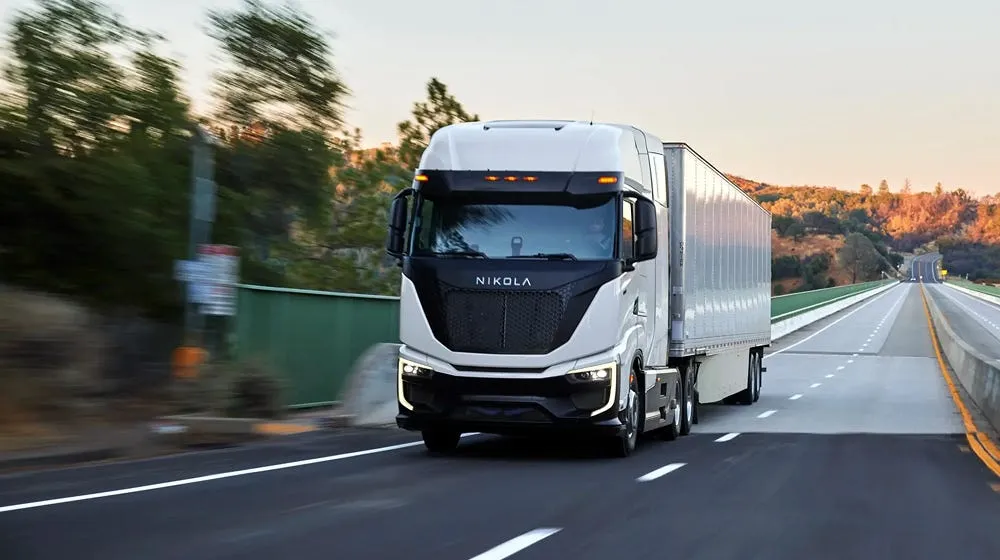
Nikola aims to sell: The once-promising electric truck startup plans to sell its entire business by April, citing financial difficulties and previous controversies involving its founder, Trevor Milton. Nikola has approximately $47 million in cash to maintain limited operations during the sale process. Nikola was one of many EV startups that went public via SPAC during the pandemic, soaring to a valuation of $34 billion in June 2020, before plunging to about a fifth of that by the end of the year.
Uber vs. Tesla: Uber CEO Dara Khosrowshahi says Elon Musk intends for Tesla to independently launch its robotaxi service, without collaborating with Uber. Tesla has said that it plans to introduce its service in Austin, Tex, by June 2025. In contrast, Uber is partnering with Waymo to integrate autonomous vehicles into its platform, also starting in Austin. That means Tesla needs to build its own ride-hailing app. We’ll see…
The second time is not the charm for Lilium: Lilium, the once-promising German electric air taxi manufacturer, faces insolvency for the second time after a critical funding deal collapsed. The company first filed for insolvency in October after failing to secure a €50 million loan from the Bavarian government.
Partner content
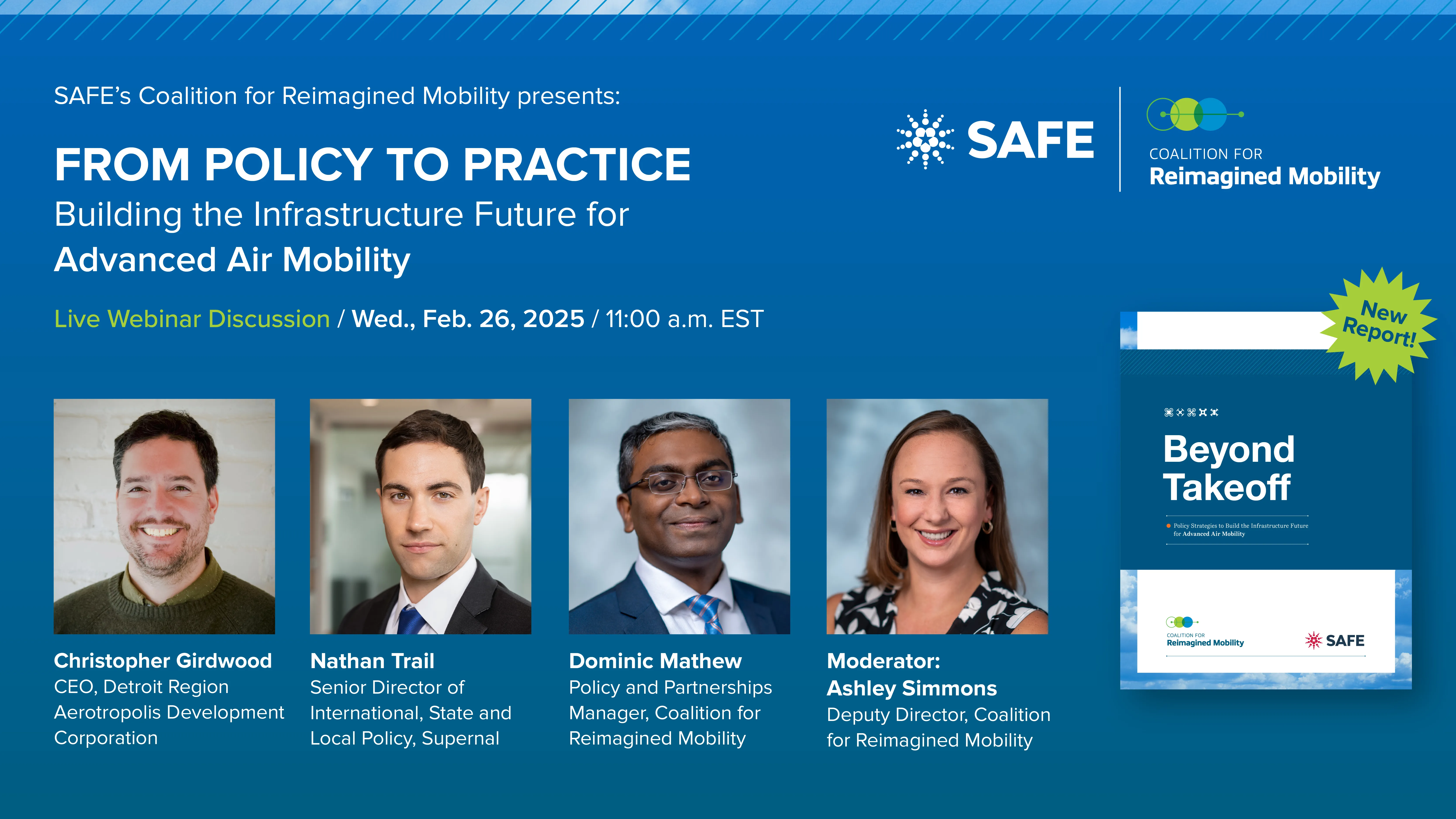
Advanced Air Mobility (AAM) is set to transform how people and goods move, but realizing its full potential requires strategic policies, investment in public infrastructure, and regulatory frameworks that foster innovation and competition.
Register now for a webinar on this topic taking place Wednesday, February 26th at 11:00 a.m. ET featuring the release of a new report, Beyond Takeoff: Policy Strategies to Build the Infrastructure Future for Advanced Air Mobility, developed by SAFE’s Coalition for Reimagined Mobility (ReMo).
The new report outlines key policy strategies for developing a scalable, interoperable, and forward-looking AAM ecosystem. It highlights the need for infrastructure investment, streamlined regulations, and long-term planning to support the growth of this emerging sector.
What we're reading
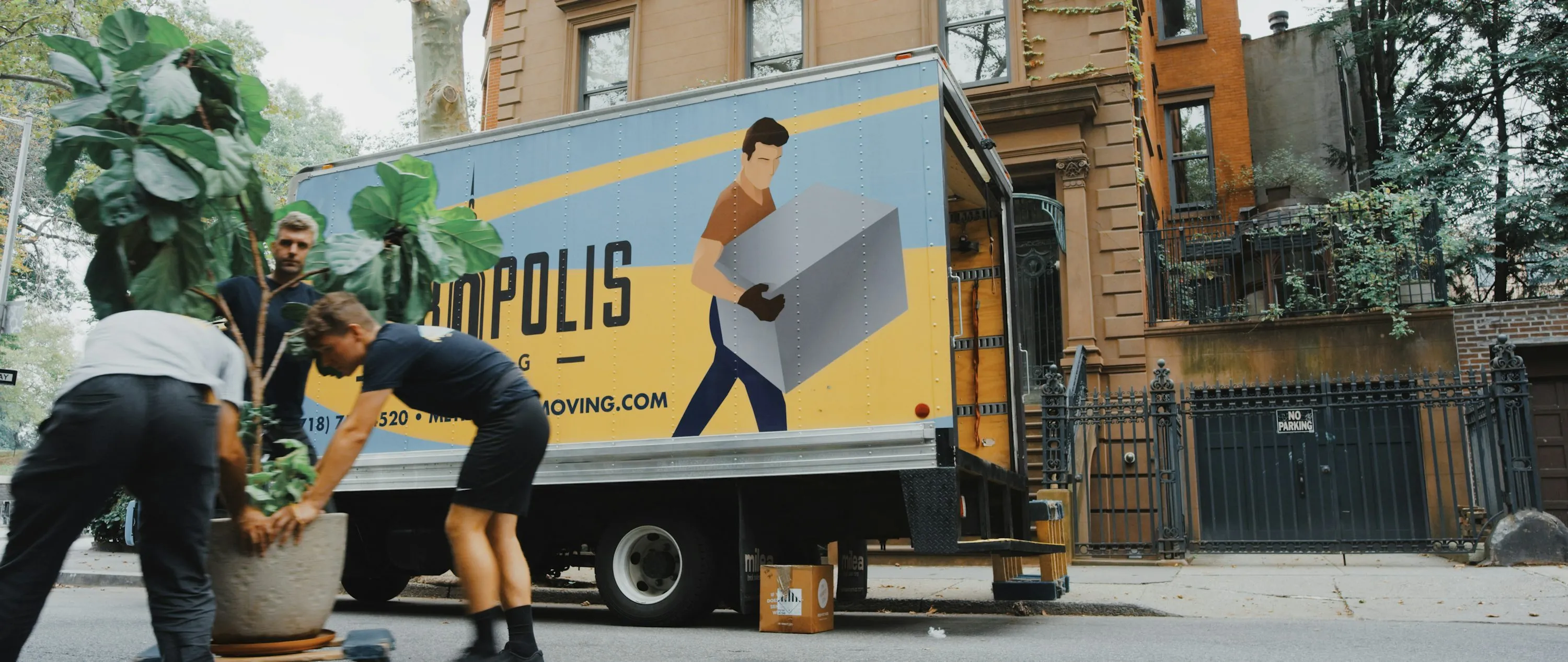
Why Americans stopped moving: In his cover story for The Atlantic, Yoni Appelbaum examines the significant decline in geographic mobility among Americans over the past half-century. He identifies unexpected contributors to this trend, including progressive urban planners like Jane Jacobs, whose efforts to preserve communities inadvertently limited urban evolution and accessibility for newcomers. He emphasizes that decreased mobility has led to reduced social dynamism and fewer opportunities for individual advancement, suggesting that revitalizing mobility could rejuvenate American communities both socially and economically.
The environmentalists thwarting clean energy: Writing for Politico, Michael J. Dunkelman, author of Why Nothing Works: Who Killed Progress –– and How to Bring it Back, describes the obstacles a hydroelectric project in Massachusetts has faced from environmental groups in New Hampshire and Maine, who oppose the construction of a 192-mile transmission line. This is why we can’t have nice things!
